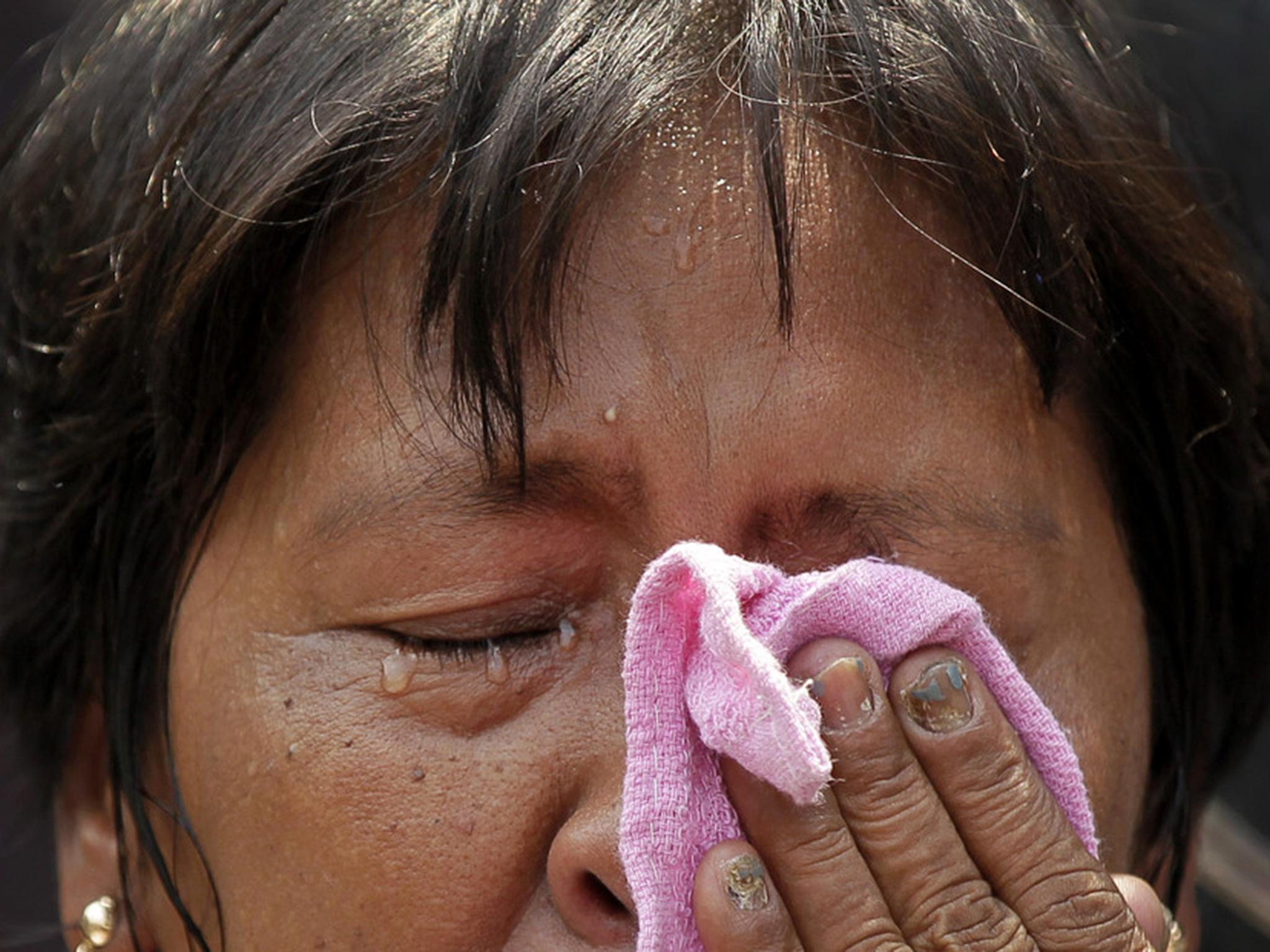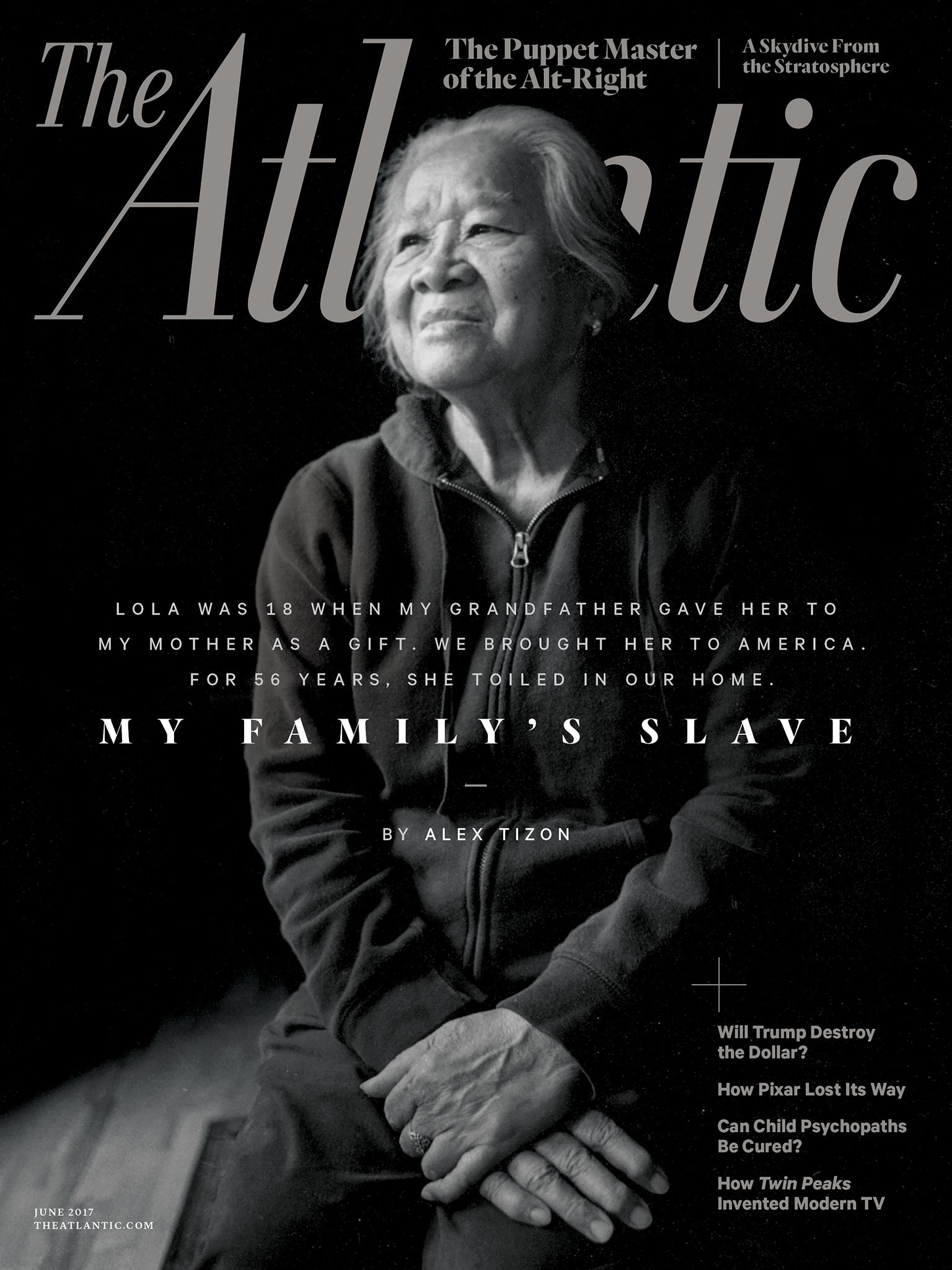Debt bondage, domestic servitude and indentured labour still a problem in the world's richest nations
With My Family’s Slave, journalist Alex Tizon challenges our complacency over domestic workers. When does domestic work become slavery?

Your support helps us to tell the story
From reproductive rights to climate change to Big Tech, The Independent is on the ground when the story is developing. Whether it's investigating the financials of Elon Musk's pro-Trump PAC or producing our latest documentary, 'The A Word', which shines a light on the American women fighting for reproductive rights, we know how important it is to parse out the facts from the messaging.
At such a critical moment in US history, we need reporters on the ground. Your donation allows us to keep sending journalists to speak to both sides of the story.
The Independent is trusted by Americans across the entire political spectrum. And unlike many other quality news outlets, we choose not to lock Americans out of our reporting and analysis with paywalls. We believe quality journalism should be available to everyone, paid for by those who can afford it.
Your support makes all the difference.Slavery has been illegal in every country since the last country to do so, Mauritania, criminalised the practice in 2007. But while slavery is illegal, it has not disappeared. Contemporary slavery in the form of indentured labour, debt bondage or domestic servitude still exists in many places – including the richest countries of the world.
In a startling personal piece, US journalist Alex Tizon recalled how when he grew up in the Philippines, an impoverished young woman named Eudoica Pulido, known as Lola, was brought to live with the family as their domestic help. Emigrating with them to the US, with no room of her own, no pay, and no way of returning to her homeland, she suffered verbal and physical abuse from Tizon’s parents. Others were told she was a visiting relative, and she had no one to turn to for help save for her employers’ children. She was effectively the family’s slave.
If this sounds like an exceptional case, research on the conditions for migrant domestic workers in the UK reveals that the reality of domestic work should make us all uncomfortable.
Perspectives from the Philippines
Domestic work is difficult to regulate. Employers often describe workers as “one of the family”, but this often hides unpaid wages, restricted movement and forced overtime. In the Philippines, domestic workers like Pulido are not bought and sold, but they are as effectively indentured as slaves. They work for their food and lodging and receive a small allowance, but this is never enough for them to leave their employer. Most is sent back to their own family.
Migrant domestic workers, in contrast, rarely owe money to their employers directly. They pay brokers, agents, and governments for services, and repay loans to banks, finance companies, loan sharks and relatives instead. Like Eudocia Pulido, to repay these debts they must often forgo a personal life, intimate relationships, raising children and honouring family obligations.
Pulidio’s family still lives in poverty in rural Tarlac. They thought Pulido was living a comfortable life in America. Perhaps she was working to repay the cost of her ticket? Perhaps she had forgotten them?
Pulido only sent money home years after her departure, when Alex Tizon, her employers’ son, gave her a weekly allowance. Following the death of Tizon’s mother, she lived with Alex and his family in the US until her death. Her relatives in Tarlac never saw the money or boxes of goods and gifts they anticipated. Hoping to better their own lives, they intend to migrate for domestic work, too.
As Filipinos debate reparations for Pulido’s family, they are also considering the way they treat their own domestic workers. Tizon’s story took an unflinching look at the sacrifices middle-class families require from their “help”. Despite the risks, other Filipino women continue to seek similar domestic work situations overseas, and of the potential destinations, the UK is reputed to offer the highest wages.
Irregular migrants
In the UK there are limits on jobs in domestic work for migrants from outside the EU. Domestic Worker visas allow non-European workers to enter with their employer and stay for only six months. Migrants on this visa often experience non-payment of wages, abuse and exploitation. The six-month limit makes it very difficult for them to change employers. And not all Filipino migrants doing domestic work hold visas.
When I interviewed Filipinos in London between 2009 and 2012, only two of 61 people I met held this visa. Most of my interviewees worked in London’s informal economy for domestic services, but had arrived on student or tourist visas and then disappeared.
An estimated 32,000 Filipinos in the UK have irregular immigration status, augmenting 218,126 working visa holders, permanent residents and citizens, and their dependants. Irregular migrants are predominantly women and do in-home, cash-in-hand housekeeping, babysitting, cleaning and caregiving work. Their earnings go towards servicing debts, or to their families to send their children to school, provide medical care, improve their housing, and starting businesses. Some are still repaying debts incurred for previous contract domestic work in Hong Kong or Singapore, or care-giving in Israel.

Their irregular status means they struggle to access healthcare, are often underpaid, rent outside regulatory controls, and live in fear of being stopped, held and quickly deported by the UK Border Agency. Informal landlords, employers, and other migrants manipulate them by threatening to report them to the authorities. Facing low wages and precarious work, they depend on the goodwill of employers to sustain them – a situation that leads to them being exploited.
Irregular migrants can change employers to search for better-paid work and more generous conditions. A few of my interviewees received higher wages than workers in equivalent formal sector jobs, but across the group their situations varied widely. One, a teacher turned nanny-housekeeper, earned over £37,000 a year. Another, an accountant-cum-caregiver, faced destitution after her employer died. Both were servicing large debts to support families they hadn’t seen in years, and if caught would be deported, unable to return to the UK for a decade.
Irregular migrant domestic workers are not quite slaves. Yet their circumstances may be closer to slavery than we’d like to acknowledge. The full life denied to Pulido is something Britain’s irregular migrant workers also forego, because their debts limit their choices.
Working with Filpino NGO Kanlungan, our project team is exploring ways to improve conditions for Filipino migrants. Beginning with community arts workshops, the aim is to increase their financial literacy so they can avoid debt, while showing workers and politicians just how much – and how widely – their debt-fueled migration contributes to national development in the Philippines.
Here in the UK, we need to end systems that tie migrants doing domestic work to their employers so they have freedom to seek better working conditions. Where there is demand for migrant domestic and caregiving work, it should only be under formal, regulated working conditions. After all, post-Brexit the UK may find it needs to rely even more heavily on migrants from outside Europe.
This article was originally published on The Conversation (www.conversation.com). Deirdre McKay is a Senior Lecturer in Geography at Keele University
Join our commenting forum
Join thought-provoking conversations, follow other Independent readers and see their replies
Comments